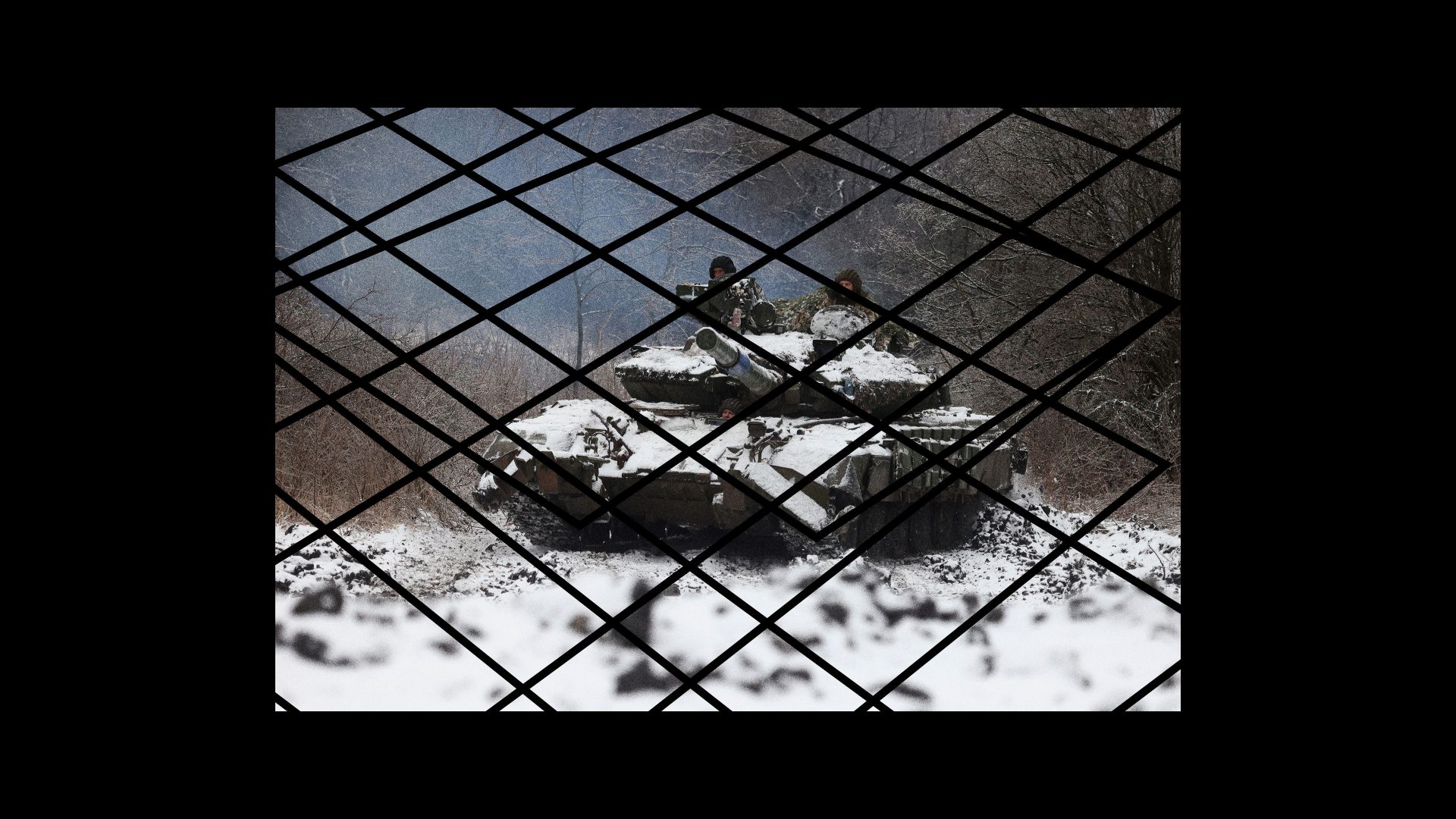Crunch time is approaching for the west’s commitment to Ukraine. Last week, the US Congress refused President Biden’s request for a $105bn security package, including money both for Israel and Ukraine. Meanwhile, the EU’s planned €50bn package of arms, aid and ammunition, remains blocked by Hungary’s prime minister, Viktor Orbán.
Orbán allowed the EU to formalise the accession process for Ukraine and Moldova, through the farcical diplomatic measure of visiting the lavatory while the vote was being taken. But the signals are clear. Putin is mobilising Russia’s strength in depth, hiking his 2024 defence budget to 6% of GDP – double what he spent this year. He has reiterated his goals: demilitarisation and neutrality for Ukraine, together with “de-Nazification”, the perverse phrase he uses to describe removing the democratically elected government and its Jewish head of state.
In response, the west’s resolve is failing. Western politicians pledge to stand by Ukraine “for as long as it takes”. But what Kyiv wants is “whatever it takes”. And that means heavier and longer-range weapons, and increased western arms production – subvented by western taxpayers – neither of which are currently forthcoming in significant quantities. If we are not careful, EU accession for Ukraine will become – instead of the bold gesture of solidarity and geostrategic autonomy it was meant to be – a consolation prize for failure. If Russia finally solidifies its hold on the four claimed provinces of Donetsk, Luhansk, Kherson and Zaporizhzhia, and strangles the rest of the country, one Kyiv-based contact told me last week, many of their populations might simply leave for the EU.
The sources of western irresolution are several. The most obvious is Russian influence. Russian disinformation factories are working overtime to promote the narrative that Ukraine cannot win; the lie that Kyiv is “torturing” a US social media figure arrested for security breaches; that the Zelensky administration is corrupt etc.
But on their own, these narratives would barely matter. It’s the venality of Russia-friendly right wing populist forces like the Republican right and Orbán’s Fidesz that complicates matters. The Republicans want money diverted from Ukraine – and from Israel – to fund an anti-migrant crackdown on the Mexican border. Orbán wants the return of €22bn in EU funds, frozen because of his repeated violations of the rule of law.
And these gruesome racists, in turn, predate on a liberalism that is systematically lacking in self-belief. When Biden tied a $50bn arms package to Ukraine to $14bn worth of weapons for Israel, it may have looked like genius realpolitik. But tying a just cause – Ukraine – to a disproportionate and reckless Israeli response in Gaza eviscerates the moral case full stop.
It allows men like Orbán to reduce everything to realpolitik, and make a mockery of the rules-based international order America claims to be defending in Ukraine. And this macabre choreography, of Congressional walkouts and strategic toilet visits, is by no means the nadir.
In 2024, Donald Trump could win the presidency. If he does, he will reorient the US towards an isolationist project: confronting China first, and Russia not at all. He may, as he did in 2018, threaten to pull America out of Nato, in order to boost European commitments to military spending. And he will certainly back Benjamin Netanyahu’s determination to block a two-state solution to the Israel-Palestine conflict.
Last week, Professor Justin Bronk of the Royal United Services Institute, outlined the urgent need for Europe to get its act together on Ukraine. He pointed out that, with the exception of Poland, European countries are nowhere near reaching the levels of spending on arms, ammunition, defence research and aid for Ukraine that would be needed if the US walked away from Kyiv.
Germany’s defence spending remains below the promised 2% of GDP. Britain, as the National Audit Office reported, is carrying a £17bn hole in its defence equipment budget over the next 10 years, and the “aspiration” to spend 2.5% of GDP on defence remains just that.
Without serious change, the buzzwords that once hummed through the corridors of EU diplomacy – strategic autonomy – will remain a fantasy. Though I applaud the European Council’s decision to begin the accession process, it looks gestural until politicians in every European capital begin to make serious investments in the industrial capacity needed to supply Ukraine – let alone to modernise their own forces.
Professor Bronk points out that there is no easy way out of the war for the west. Putin wants victory and conquest. He has geared his own society to permanent war, and has reoriented his industrial base to churn out tanks, artillery barrels and ammunition. If we handed Putin all four provinces of south-eastern Ukraine, he would simply set the GPS for Odesa and, after that, the Moldovan capital of Chișinău.
The Ukrainian people remain resolute, but realistic. Many understand they are losing some of the country’s most talented, selfless people in this war. They know the aftermath will be challenging. But there is no way they will accept defeat. They have come too far.
What we need is for western politicians to understand that, with Putin, there are only binary outcomes. One is that he defeats Ukraine and, after a pause to rearm himself, begins to menace another western ally. The other is that the Russian army loses the will to fight and the means to fight because western arms, training and ammunition help the Ukrainians to inflict defeat after defeat.
That is entirely possible. But we need our political class to summon the will to make it happen.




